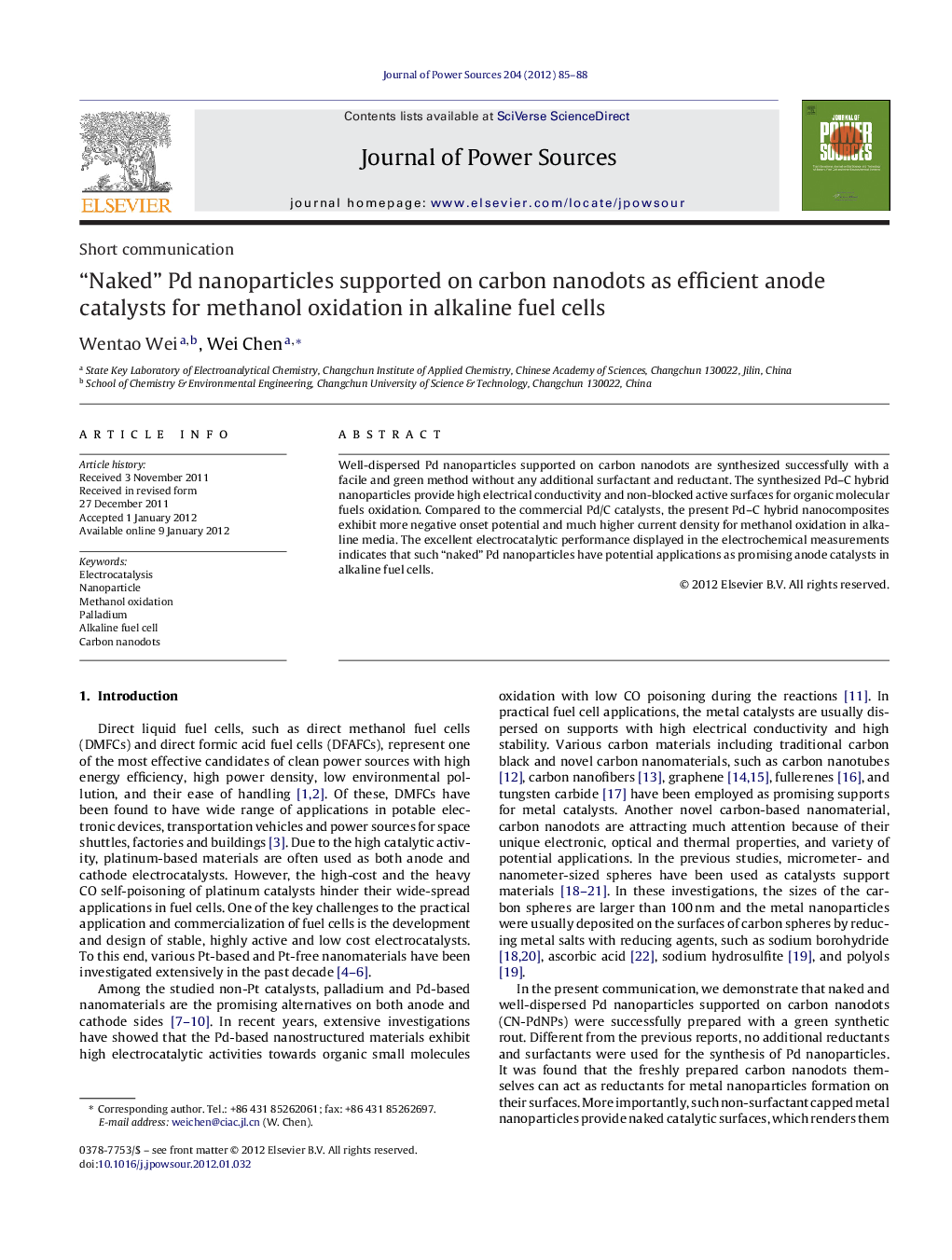| Article ID | Journal | Published Year | Pages | File Type |
|---|---|---|---|---|
| 1293132 | Journal of Power Sources | 2012 | 4 Pages |
Well-dispersed Pd nanoparticles supported on carbon nanodots are synthesized successfully with a facile and green method without any additional surfactant and reductant. The synthesized Pd–C hybrid nanoparticles provide high electrical conductivity and non-blocked active surfaces for organic molecular fuels oxidation. Compared to the commercial Pd/C catalysts, the present Pd–C hybrid nanocomposites exhibit more negative onset potential and much higher current density for methanol oxidation in alkaline media. The excellent electrocatalytic performance displayed in the electrochemical measurements indicates that such “naked” Pd nanoparticles have potential applications as promising anode catalysts in alkaline fuel cells.
Graphical abstractFigure optionsDownload full-size imageDownload as PowerPoint slideHighlights► “Naked” Pd nanoparticles supported on carbon nanodots are synthesized. ► The structure of the Pd–C hybrid nanomaterials are characterized with TEM, XRD and XPS measurements. ► The Pd–C hybrid nanocomposites exhibit high catalytic activity for methanol oxidation in alkaline media.
